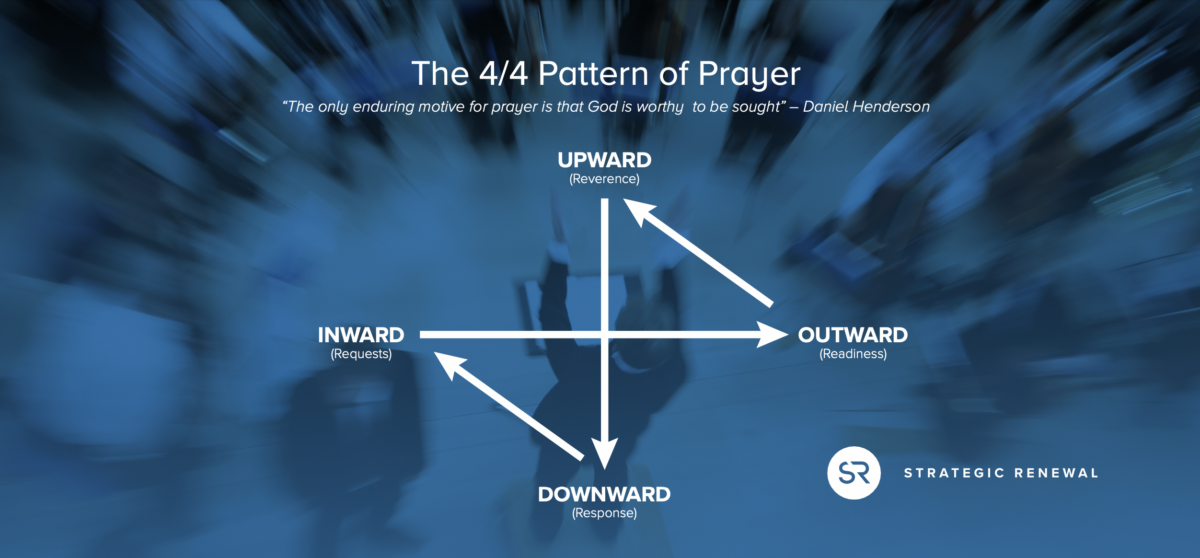While traveling the nation, speaking in a wide assortment of congregations, I’ve observed a troubling trend of language that depersonalizes the Holy Spirit. Rather than the holy, supernatural, and personal indwelling of God’s Spirit, the vernacular of songs, and even preachers, might lead many to believe that the Holy Spirit is some ethereal “force” that periodically appears, perhaps blowing in from the building’s ventilation system. I get the feeling in many places that we are conjuring up an elusive “it” rather than celebrating and cherishing the transforming power of an indwelling “Him.”
Majority Confusion
According to a recent study by Lifeway Research, 56 percent of evangelical Christians say the Holy Spirit is a force rather than a personal being.[i] Could it be that Christians today believe this because they are hearing confusing messages about the Holy Spirit on the radio and in their churches? Perhaps our evangelical churches should study John 16:7-15, a passage that refers to the Holy Spirit with a personal pronoun (he, him, his) twelve times. Never in the Bible is the Spirit referred to as an impersonal force.[ii]
According to a recent study by Lifeway Research, 56 percent of evangelical Christians say the Holy Spirit is a force rather than a personal being.
I am convinced that even among those who intellectually and theologically affirm that the Holy Spirit is a person, many still speak of Him as a “force” that mysteriously arrives from some obscure location. They describe Him in obscure third person language as “The Presence” or a “power” in the atmosphere. I am deeply concerned that the Holy Spirit, even in contexts where His work is emphasized and His presence evoked, has become the “misrepresented God.”
I am convinced that even among those who intellectually and theologically affirm that the Holy Spirit is a person, many still speak of Him as a “force” that mysteriously arrives from some obscure location.
Francis Chan agrees: “He is not an indistinct ‘power’ or ‘thing.’ I often hear people referring to the Spirit as an ‘it,’ as if the ‘Spirit’ is a ‘thing’ or ‘force’ that we can control or use. This distinction may seem subtle or trivial, but is actually a very serious misunderstanding of the Spirit and his role in our lives.”[iii]
This confusion ultimately detracts from the compelling New Testament teaching on the person of the Spirit dwelling within us. This can subtly diminish our conscious, moment-by-moment enjoyment and consistent empowerment by the indwelling Christ. Most troubling, a confused view of the Holy Spirit can distort the sufficiency of our new covenant promises based on the glorious person, sufficient work, and clear promises of Jesus Christ.
Known, Loved, Worshiped
Because the Holy Spirit is a person, He is to be intimately known, deeply loved, and clearly understood. Because He is God we relate to Him in abandoned worship, unquestioned obedience, and full surrender.
Because the Holy Spirit is a person, He is to be intimately known, deeply loved, and clearly understood. Because He is God we relate to Him in abandoned worship, unquestioned obedience, and full surrender.
Practically speaking, I love the way one Puritan writer from the 1600s stated it: “Our worship is sometimes with the Father and then with the Son, and then with the Spirit. Sometimes the believer’s heart is drawn out to consider the Father’s love in choosing, and then the love of the Son in redeeming. And sometimes His heart is drawn to the love of the Holy Spirit that searches the deep things of God and reveals them to us…We should never be satisfied with our worship until all three persons lie level in us and we sit in the middle of them while they all manifest their love to us.” [iv]
If He were simply a force we summon, then He could be reduced to an “object” that we use for our temporal purposes and personal desires. Few things could be more contrary and offensive to the One whose holy presence is meant to rule and transform us. Nothing could more seriously contradict the finished work of Christ and His beautiful plan for this new kind of relationship, for which He shed His blood. Nothing could more seriously undermine our holy and beautiful relationship as adopted children brought into an assured and holy “belonging” to a loving Lord and Savior.
If He were simply a force we summon, then He could be reduced to an “object” that we use for our temporal purposes and personal desires. Few things could be more contrary and offensive to the One whose holy presence is meant to rule and transform us.
Boyd Hunt summarized it well: “Most importantly, the Holy Spirit, who is personal, acts personally, not impersonally or magically. Those who view the Holy Spirit as an impersonal power are concerned about how to control or use him. By viewing the Spirit personally, as the Spirit of the God we know in Christ, our concern should be to let the Spirit control our lives.”[v] And, I would add, what beautiful, profound, and ultimately fulfilling control this can be!
The Spirit of Christ
None of us would think of Christ as an “it” or some amorphous presence floating just below the ceiling of the worship center. We think of Jesus in very personal terms springing from all of the compelling pictures of His life as seen in the Gospels. We picture His love, compassion, mercy, confrontation of sin, and very intimate relationships with His followers. While Jesus and the Spirit are distinct in personality, the New Testament still describes God’s presence in us as “the Spirit of Christ” or “Christ in us” (Romans 8:9–11; Philippians 1:19; Galatians 4:6; Ephesians 3:16–17; Galatians 2:20; Colossians 1:27). So, to be accurate in our relationship with the Holy Spirit, we must think of Him as the indwelling presence of an intimate Savior, Lord, and friend. Gordon Fee notes, “The Spirit’s agency can hardly be less personal than that of Christ.”[vi]
One writer said that Jesus puts a face on the Holy Spirit. I like that. British scholar James D.G. Dunn elaborates in describing the New Testament work of the Holy Spirit: “Vitality of the Christian experience does not cease because the historical Jesus has faded into the past and the coming of Jesus has faded into the future; it retains its vitality because the Spirit is at work here and now as the other Paraclete.”[vii]
Jesus puts a face on the Holy Spirit.
I’ve been to some churches that I think should be called “The Star Wars Community Church” because the way they sing and speak of the Holy Spirit leaves me with a salient message: “The force is with you.” When you add the environmental smoke, digital lights, massive amplification (and even some sound effects), I’m ready to pull out my light saber and take on Darth Vader. Or maybe it is supposed to be the devil. Who knows?
I’ve been to some churches that I think should be called “The Star Wars Community Church” because the way they sing and speak of the Holy Spirit leaves me with a salient message: “The force is with you.”
We cannot think of the Holy Spirit in impersonal terms. His “presence” is not some mystical gas or the arrival of some nondescript energy force. His presence is very personal. He lives in us personally. He works in us personally. He moves in and among us personally.
We cannot think of the Holy Spirit in impersonal terms. His “presence” is not some mystical gas or the arrival of some nondescript energy force. His presence is very personal. He lives in us personally. He works in us personally. He moves in and among us personally.
A Personal, Perpetual Ask
So when Jesus said, “If you then, who are evil, know how to give good gifts to your children, how much more will the heavenly Father give the Holy Spirit to those who ask him!” (Luke 11:13), what did He have in mind when He urged us to continually ask for the Holy Spirit? He would later explain the person and work of the Holy Spirit in His own words during His final gathering with His disciples (John 14-16).
I love the clarity of His words:
And I will ask the Father, and he will give you another Helper, to be with you forever, even the Spirit of truth, whom the world cannot receive, because it neither sees him nor knows him. You know him, for he dwells with you and will be in you. I will not leave you as orphans; I will come to you (John 14:16–18).
The Spirit who had been with them in the person of Christ would now be in them in the person of the Holy Spirit. And Jesus made it very personal, when He said “I will come to you.” His life, person, and power would dwell in them and they would constantly seek to abide in His life.
So, just as our initial “ask” resulted in a powerful salvation from a personal Savior, so our perpetual “asking” promotes a powerful sanctification through the indwelling presence of a personal, indwelling God.
Copyright © 2019 Daniel Henderson. All rights reserved.
(Find resources along this theme HERE)
[i] https://blog.lifeway.com/newsroom/2016/09/27/americans-love-god-and-the-bible-are-fuzzy-on-the-details/
[ii] https://juicyecumenism.com/2018/11/08/evangelicals-beliefs-about-trinity/
[iii] Francis Chan, Forgottern God, 70
[iv] Thomas Goodwin, The Works of Thomas Goodwin, volume 8, The Object and Acts of Justifying Faith (Edinburg: James Nichol, 1864) 378 – 379
[vi] Gordon Fee, 26
[vii] James D. G. Dunn, Jesus and the Spirit, (London: SCM Press LTD, 1975), 351.





